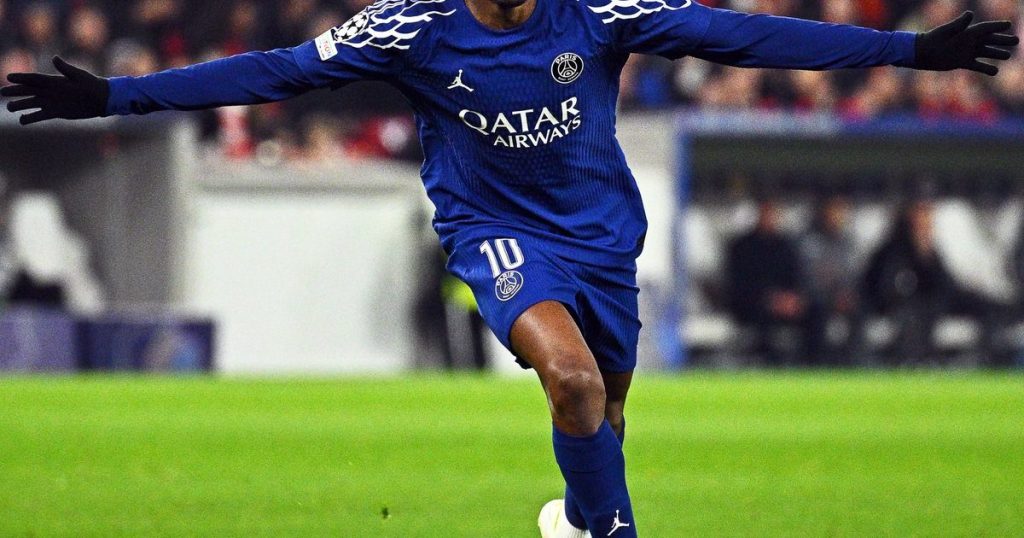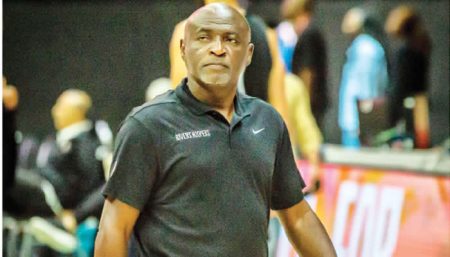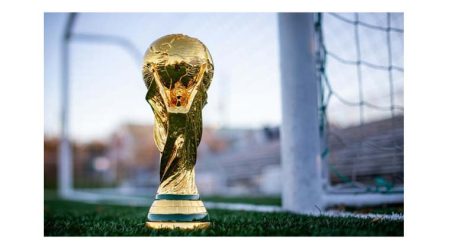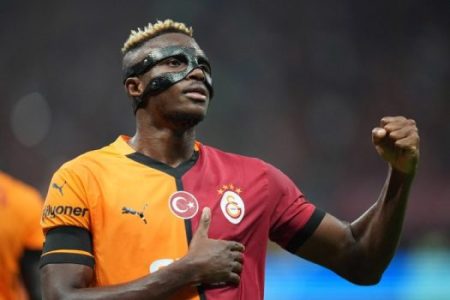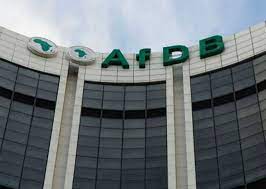France Faces Spain in Nations League Semi-Final: A Test of Depth Amidst Injuries
The UEFA Nations League semi-final clash between France and Spain promises a captivating encounter between two European football powerhouses. France, led by the pragmatic Didier Deschamps, enters the match grappling with significant defensive absences. Key defenders William Saliba, Dayot Upamecano, and Jules Kounde, boasting a combined 100 international caps, are unavailable due to injuries. This presents a considerable challenge for France, especially considering Spain’s formidable attacking prowess. However, Deschamps, a seasoned strategist who guided France to World Cup glory in 2018 and a runner-up finish in 2022 despite similar selection setbacks, remains unfazed. He expressed confidence in his available squad, emphasizing their ability to compete against a strong Spanish side. The match becomes a test of France’s depth and resilience, showcasing their ability to adapt and perform under pressure.
Deschamps Backs Dembélé for Ballon d’Or: A Testament to a Stellar Season
While the defensive concerns loom large, France’s attacking line-up offers a beacon of hope. Kylian Mbappé, alongside freshly crowned Champions League winners Ousmane Dembélé and Désiré Doué, form a potent attacking trident capable of dismantling any defense. Deschamps, particularly impressed with Dembélé’s exceptional season with Paris Saint-Germain, endorsed the winger for the prestigious Ballon d’Or award. He believes Dembélé’s consistent brilliance throughout the season merits the highest individual accolade in football. This high praise from a respected coach like Deschamps underscores Dembélé’s remarkable contribution to PSG’s success and adds another layer of intrigue to the upcoming semi-final. The match offers Dembélé a platform to further showcase his talent against a top-tier opponent, strengthening his case for the coveted award.
Konaté Emerges as Defensive Leader: Embracing the Challenge and Opportunity
With the experienced defensive trio sidelined, the responsibility of marshaling France’s defense falls upon Liverpool centre-back Ibrahima Konaté. While acknowledging the impact of the injuries, Konaté exudes confidence in the team’s overall quality and depth. He emphasizes the "exceptional talent pool" within the French national team, suggesting that even with the absences, they possess the necessary resources to compete at the highest level. Konaté’s leadership and composure will be crucial in navigating the challenges posed by Spain’s attacking threat. He is likely to be partnered by either Benjamin Pavard, Lucas Hernandez, Clément Lenglet, or potentially debutants Loïc Badé and Pierre Kalulu, offering a blend of experience and youthful exuberance.
France vs. Spain: A Clash of Styles and Aspirations
The semi-final clash between France and Spain promises a fascinating tactical battle between two contrasting styles. Spain, renowned for their possession-based game and intricate passing combinations, poses a unique challenge for France’s defense. France, on the other hand, boasts a more direct and explosive attacking approach, relying on the individual brilliance of players like Mbappé and Dembélé. The match becomes a test of adaptability for both teams, demanding tactical adjustments and strategic awareness. Beyond the individual brilliance and tactical nuances, the match carries significant weight in terms of national pride and ambitions. Both teams aspire to secure a place in the Nations League final and add another trophy to their illustrious cabinets.
The Broader Context: Nations League Significance and Future Implications
The Nations League, while a relatively young competition, has quickly gained prominence in the international football calendar. It provides a platform for top European nations to compete against each other in a meaningful format outside of major tournaments like the World Cup and European Championship. The competition also offers valuable experience for players and coaches, allowing them to test their strategies and develop their understanding of different opponents. Moreover, success in the Nations League can serve as a springboard for future tournaments, boosting confidence and momentum. For teams like Germany and Portugal, who face off in the other semi-final, the Nations League presents an opportunity to assert their dominance and build towards future successes. Germany, reaching the semi-finals for the first time, seeks to make a statement on home soil, while Portugal aims to replicate their triumph in the inaugural edition of the tournament.
Looking Ahead: The Final and Beyond
The winner of the France-Spain semi-final will face either Germany or Portugal in the Nations League final, setting the stage for a thrilling conclusion to the competition. The final will not only determine the champion but also provide valuable insights into the strengths and weaknesses of the participating teams ahead of future international tournaments. The performance of individual players, tactical innovations, and overall team dynamics showcased in the Nations League can have significant implications for upcoming major competitions like the European Championship and World Cup. Thus, the semi-final and final matches hold immense significance beyond the immediate context of the Nations League, shaping the narrative and expectations for the future of European international football.





